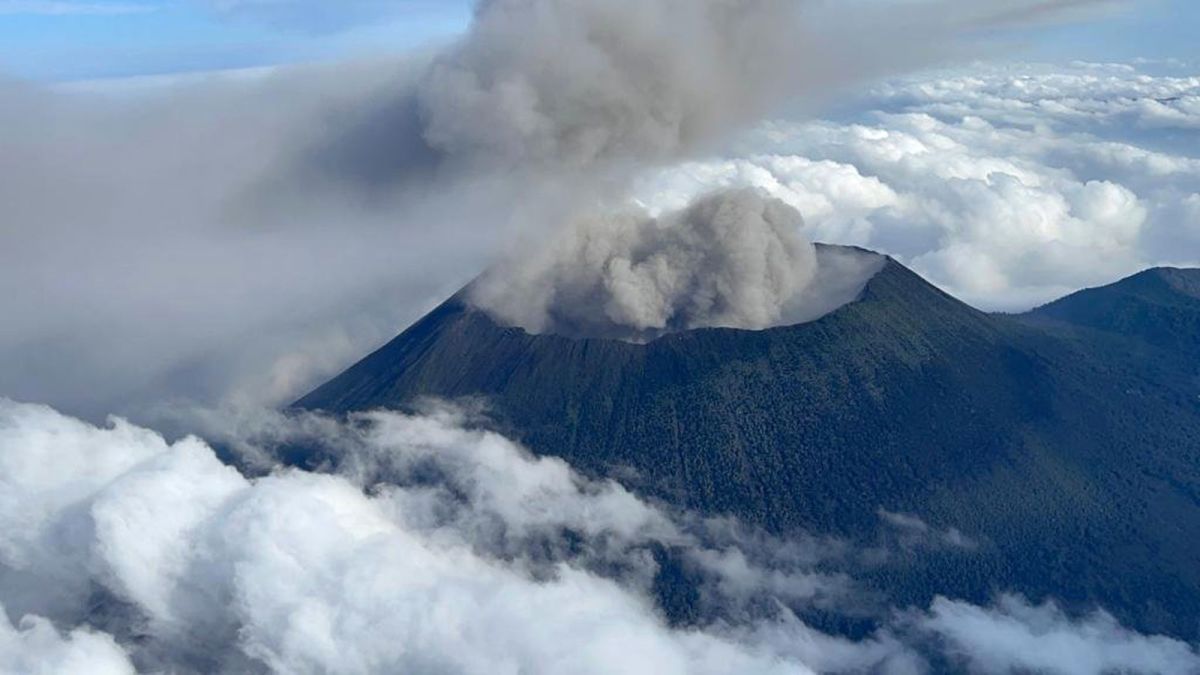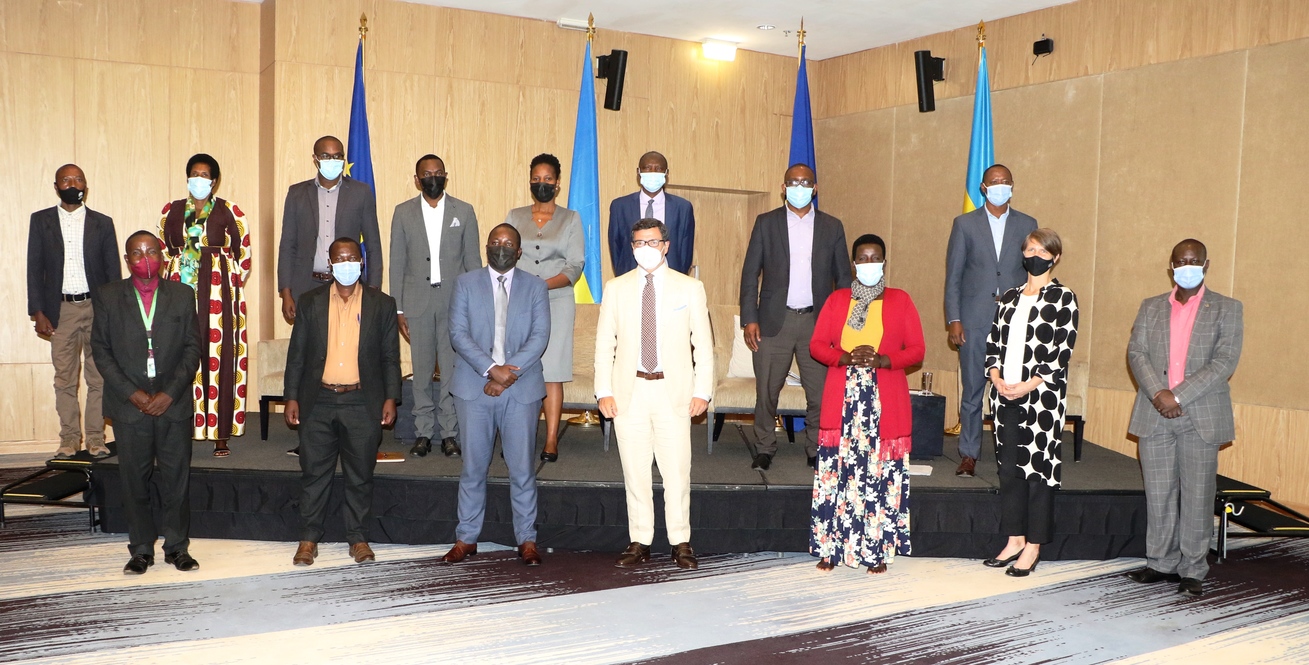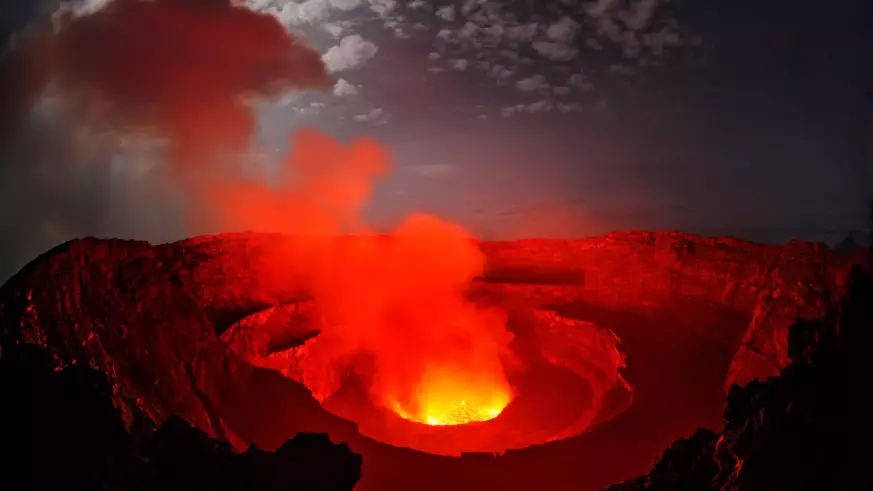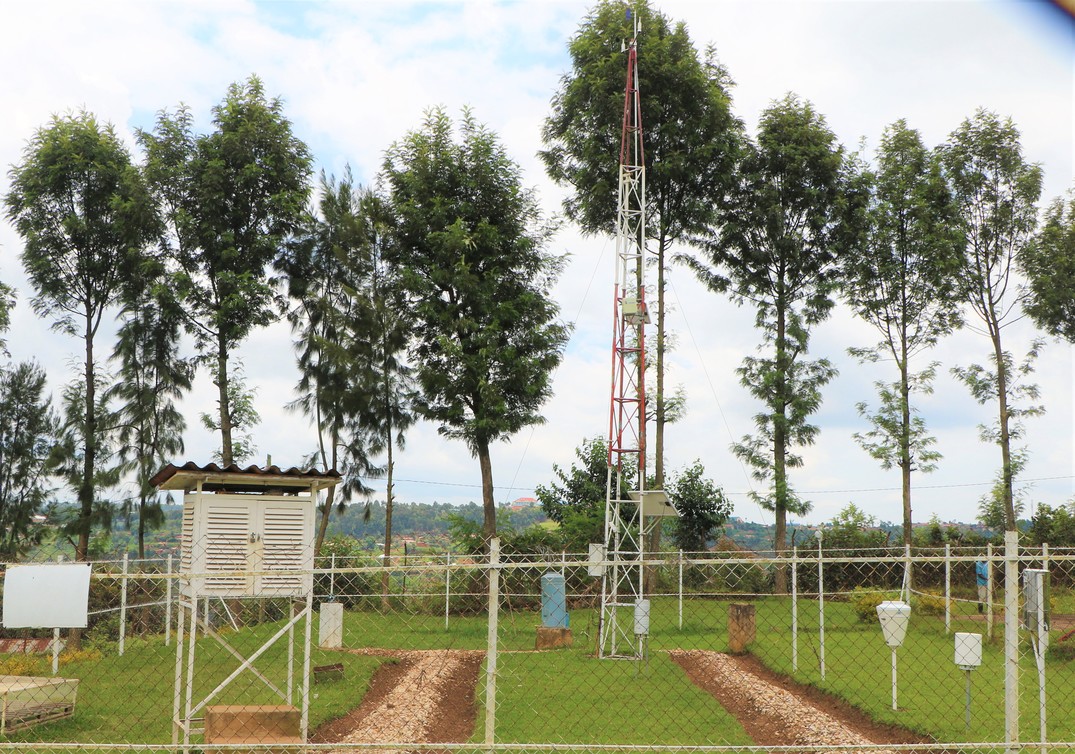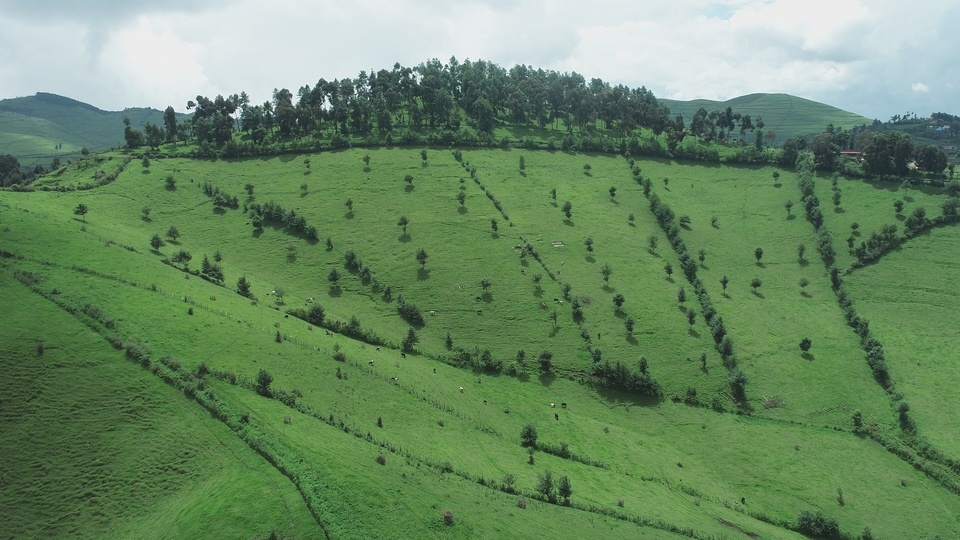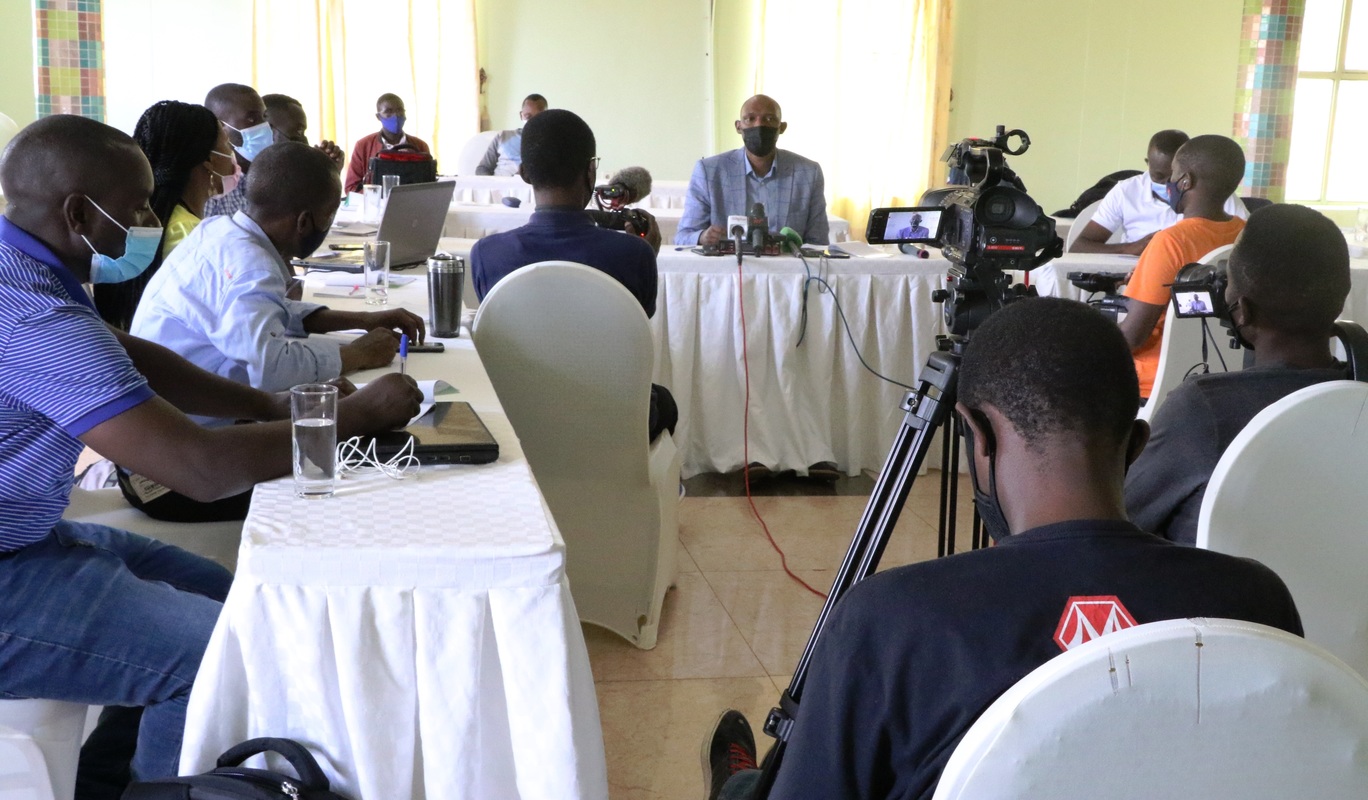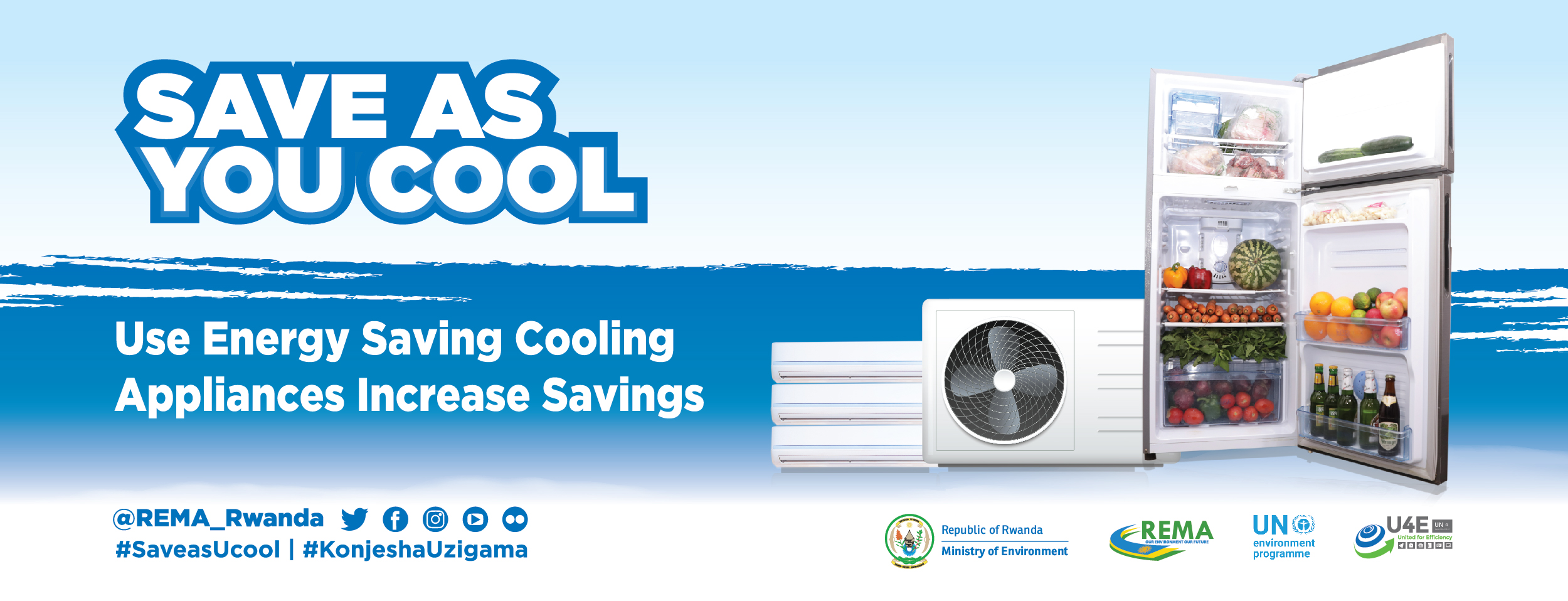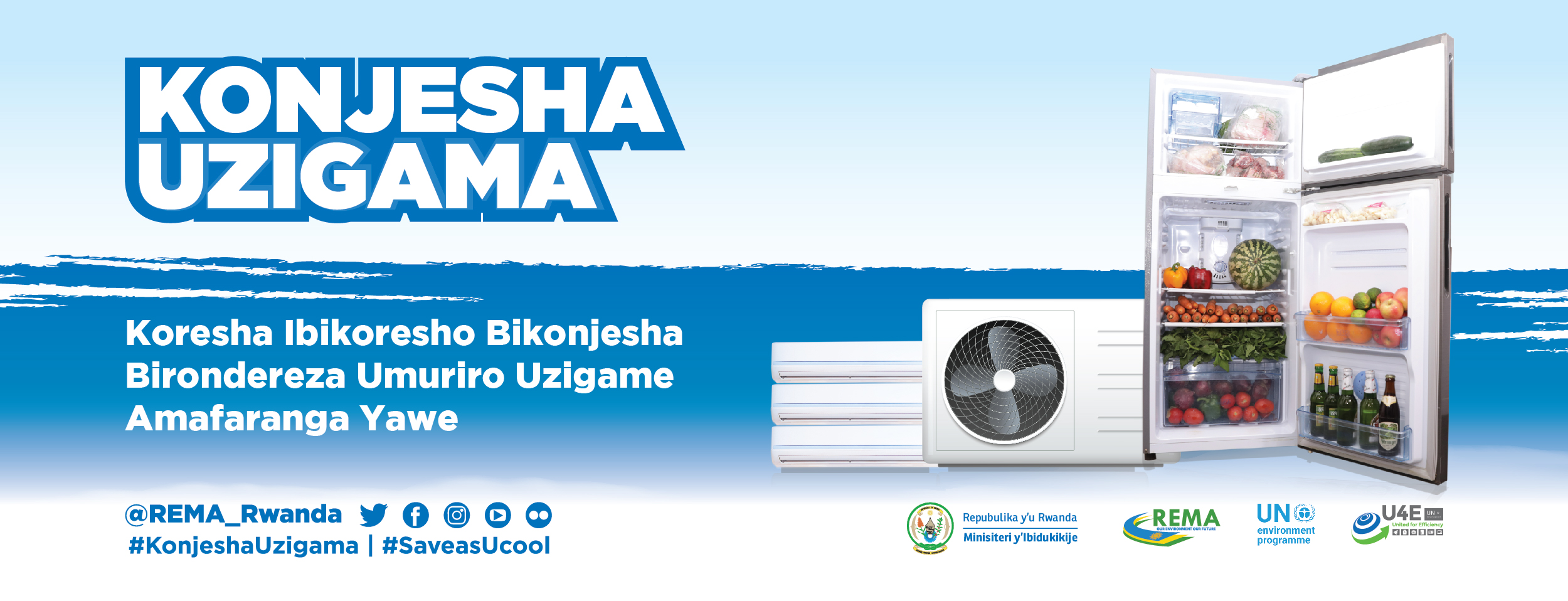
Refusing single use plastics will make life and the planet better
Rwandans have been encouraged to avoid single-use plastics in order to reduce environmental pollution and save the planet from the dangers of plastic pollution.
This was highlighted during a one-day conference on strategies, policies and ways of addressing plastic pollution. The conference, held on May 29, 2018 in Kigali, was also an opportunity to launch the National Environment Week- a weeklong campaign on plastic pollution ahead of the 2018 World Environment Day.
“Plastic waste has become an environmental catastrophe we can no longer ignore”, said Vincent Biruta, the Minister for Environment during the official launch of the Environment Week.
“The challenge we face is no longer plastic bags alone, but all plastics, especially those used once and thrown away. Single use plastics are damaging our rivers, wetlands, and farmlands. They also pose a risk to our health. Like all rubbish, plastic waste blocks drains and waterways. This increases the chances of flooding and provides the breeding grounds for mosquitoes, raising the risk of malaria and other water borne diseases,” Hon. Biruta noted.
Minister Biruta noted that the biggest sources of plastic waste include bottles, straws, cups, plates and cutlery - the kind you often see at meetings and traditional gatherings like weddings and which are flown away right after they are used.
He said: “It’s time to make the switch and say no to single use plastic. For example, when you are at a restaurant, tell the staff that you don’t want a straw in your glass of juice or disposable cutlery. If you like takeaway coffee, bring your own mug. If you can’t reuse it, just refuse it!”
“I encourage everyone to invest in sustainable alternatives to plastics that are better for our health and the environment”, he added.
Celebrated every year on June 5, World Environment Day is an opportunity to promote environmental stewardship. This year’s World Environment Day will be marked under the theme: “Beat Plastic Pollution. If you can’t reuse it, refuse it” – a theme that calls upon governments, industries, communities, and individuals to come together to combat single-use plastics.
Eng. Coletha U. Ruhamya, the Director General of Rwanda Environment Management Authority (REMA), said this year’s theme highlights a very big environmental challenges that our planet is facing.
“It is time for us to choose between planet and plastic”, she said.
Beating plastic pollution, she said, requires “mindset change, research and innovation, particularly in the areas of recycling and re-use”.
“We have come from far but where we are heading is much far and we need to increase the momentum and move faster with more innovations to provide solutions to our problems”, Eng. Ruhamya said.
The UN Resident Coordinator Dr. Fode Ndiaye hailed Rwanda for “its strong commitment and leadership to ensure a healthy planet which is essential for a prosperous and peaceful future”.
Mr Ndiaye pledged the UN continued support to Rwanda’s efforts to beat plastic pollution and called others, including international organisations, civil society, development partners, private sector and individuals to do the same.
He said: “Today, we are producing twenty times more plastic than in the 1960s, and around one third of all plastic is used for packaging. Small changes will matter. Let us individually take today a commitment in refusing to use plastic whenever possible or to reuse it, if not possible! It is in our personal hands to our dangerous plastic hands!”
The National Environment Week, launched on 29 May 2018, will conclude on June 5. It begun with a high-level policy conference on strategies and mechanisms to address plastic pollution, managing plastic waste, strategy and policy solutions to combat the use of plastics and the business opportunities in the reduction, reuse and recycling of plastics. The conference also discussed the role of youth and women in waste management.
Other activities during National Environment Week include a countywide inspection of the illegal use of plastic bags, community work ‘Umuganda’, a Beat Plastic Pollution Walk in Kigali during Car Free Day on 3 June 2018, a Green Drinks Kigali discussion on plastic management, and an exhibition on plastic recycling, among others.
The global plastic burden
Around the world, almost 450 million tons of plastic is produced every year and about 40 percent of plastic produced is packaging, used just once and then discarded. Available figures show that globally, nearly a million plastic beverage bottles are sold every minute.
Of this plastic waste, an estimated 13 million tons enter the world’s oceans each year. By 2050, it is estimated that there will be more plastic than fish in the oceans. Most plastics are made from fossil fuels like crude oil, which contributes to climate change and estimates for the time it takes plastics to break down range from 450 years to never.
Topics
More posts
Nta ngaruka iruka rya Nyiragongo ryagize ku kiyaga cya Kivu – Ubushakashatsi bwa REMA
Ishami rishinzwe kugenzura ikiyaga cya Kivu ryo mu kigo cy’Igihugu cyo Kubungabunga Ibidukikije (REMA) ryatangaje ko nta mpungenge zihari z’uko gaz yo…
“We Are Part of the Solution for Nature”_ Slogan of This Year International Day for Biological Diversity
On 31 May 2021, Rwanda marked the International Day for Biological Diversity. The celebration event was hosted by the Delegation of the European Union…
No imminent risk of Gas outburst is expected on Lake Kivu following Nyiragongo Eruption – REMA findings
The Lake Kivu monitoring team from Rwanda Environment Management Authority (REMA) based in Rubavu District, has come up with a conclusion that there…
Air Quality Monitoring: Rwanda On The Right Track
Since 2017, the Ministry of Education (MINEDUC) and Rwanda Environment Management Authority (REMA) have been implementing the Air Quality and Climate…
How Silvopastoralism approach is contributing to sustainable and efficient livestock production around Gishwati-Mukura National Park
A couple of decades ago, it was not that easy to find a single tree in the rangelands around Gishwati-Mukura National Park.
This was not only a…
Bakeries step to eliminate plastic bags and single-use plastics
In line with the awareness on the harmful effects of plastic bags and single-use plastics, Rwanda Environment Management Authority held a two-day…
REMA trains Media practitioners to increase their engagement in environment protection
Rwanda Environment Management Authority (REMA) has trained different Media practitioners on different laws and policy on environment and climate…
REMA and UNEP’s U4E Launch Efficient Cooling Awareness Campaign
The Rwanda Environment Management Authority (REMA) in partnership with the United Nations Environment Programme’s United for Efficiency launches today…
REMA yatangije ubukangurambaga bw'ibikoresho bikonjesha bitangiza ikirere
Ikigo cy’Igihugu cyo Kubungabunga Ibidukikije (REMA), ku bufatanye n’Ishami ry’Umuryango w’Abibumbye Rishinzwe Kurengera Ibidukikije (UNEP) binyuze…
